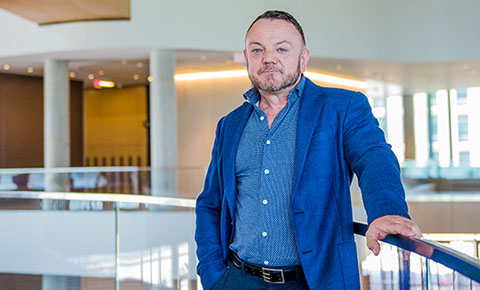What if Parents Designed Education Systems?

A new report co-authored by Northwestern University professor James Spillane explores the benefits of building education systems that develop the “whole” child and use the same rigor and comprehensive care that a parent might invest in their own offspring.
The shift from an academic model to a holistic approach is an essential part of helping children thrive, according to the report “Transforming education for holistic student development” by the Center for Universal Education at the Brookings Institute.
A 2022 review assessing the consequences of the COVID-19 pandemic noted severe declines in in reading and math scores in the United States, especially among historically underserved students. “Yet much of this discourse again lacked commensurate attention to the dramatic consequences of the pandemic on students’ holistic development, including their socio-emotional well-being,” the authors wrote.
Holistic learning integrates emotional, psychological, and social growth into academic challenges. Much like the health care model, which views the body as an interconnected system, holistic education focuses on multiple aspects of the learning process, rather than a single issue.
The lead authors collaborated with scholars around the world, examining the impact of whole child learning systems in districts, states, or national ministries in Chile, Canada, India, Ireland, Singapore, the US, and in the cross-national International Baccalaureate system.
They found that the seven global systems, both large and small, “balance technical and moral imperatives in managing environments, building infrastructure, and integrating that infrastructure into practice.”
None of the systems they looked at compromised academic rigor. Instead, they “aim further by supporting the intellectual, physical, emotional, social, cultural, and moral development of students,” Spillane and his coauthors wrote. “These systems are also committed to ensuring that all students, regardless of circumstance and background, learn and develop in ways that affirm their personal and cultural identities.”
Spillane, the Spencer T. and Ann W. Olin Professor in Learning and Organizational Change at the School of Education and Social Policy, is a global expert on education policy, policy implementation, school reform, and school leadership.
A member of the American Academy of Arts and Sciences and the National Academy of Education, Spillane is also professor of human development and social policy, professor of learning sciences, and an expert in organizational leadership and change.
Other lead authors include Amanda Datnow, Professor and Chancellor’s Associates Endowed Chair in the Department of Education Studies at the University of California, San Diego; Vicki Park, associate professor of educational leadership at San Diego State University's College of Education; and Donald J. Peurach, professor of educational policy, leadership, and innovation at the University of Michigan.
Resources: